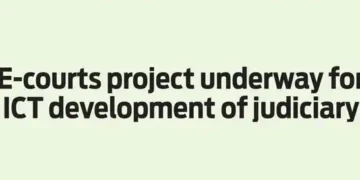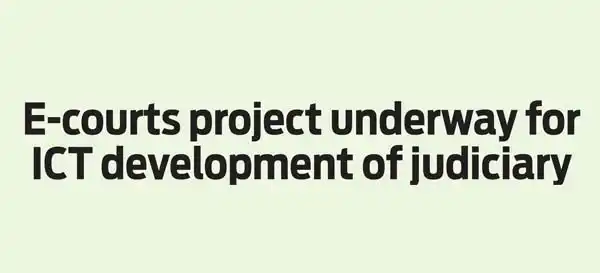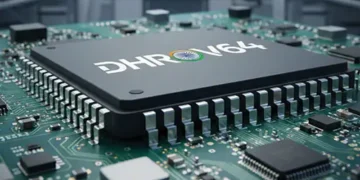THE E-courts Mission Mode Project is under implementation for Information and Communication Technology (ICT) development of the judiciary. The Department of Justice is implementing project in coordination with the e-committee of the Supreme Court of India, in a decentralised manner through the respective High Courts.
The Phase-I of the project was implemented during 2011-2015 and focused on the basics of computerisation like setting up computer hardware, ensuring internet connectivity, and operationalising the e-courts platform. Against an outlay of Rs 935 crore, total expenditure incurred was Rs 639.41 crore for implementation of this phase. The following initiatives were undertaken:
Phase-I initiatives 14,249 district and subordinate courts were computerised.
LAN was installed at 13,683 courts, hardware provided in 13,436 courts and software was installed in 13,672 courts.
Laptops were provided to 14,309 judicial officers and change management exercise completed in all High Courts.
Over 14,000 judicial officers were trained in the use of UBUNTU-Linux Operating System.
More than 3900 court staff were trained in case information system (CIS) as System Administrators.
Video conferencing facility was operationalised between 493 court complexes and 347 corresponding jails.
Citizen-centric steps
The Phase II of the E-Courts Mission Mode Project (2015-2023), focused on ICT enablement of district and subordinate courts and various citizen-centric initiatives. Against an outlay of Rs 1,670 crore, total expenditure incurred was Rs. 1,668.43 crore for implementation of this phase. Till 2023, digital infrastructure has been provided to 18,735 courts. The following e-initiatives have been undertaken by the Government under the e-courts project to make justice accessible and available for all:
Under the Wide Area Network (WAN) project, connectivity has been provided to 99.5 per cent of total court complexes across India with 10 Mbps to 100 Mbps bandwidth speed. The project is aimed at connecting all district and subordinate court complexes, spread across the country using various technologies. It forms the backbone for the e-courts project ensuring data connectivity in courts. At present, connectivity to 209 new court complexes is being provided by BSNL using Software-Defined Wide Area Network (SD-WAN) technology.
Database of orders
The National Judicial Data Grid (NJDG) is a database of orders, judgments, and cases, created as an online platform under the e-courts project. It provides information relating to judicial proceedings/decisions of all computerised district and subordinate courts of the country. Case Information Software (CIS) based on customised Free and Open- Source Software (FOSS) has been developed.
As part of e-courts project, seven platforms have been created to provide real time information on case status, cause lists and judgments etc. to lawyers/litigants through SMS, email, multilingual e-courts services portal, judicial service centres and info kiosks. In addition, electronic case management tools (ECMT) have been created with mobile app for lawyers and JustIS app for judges.































